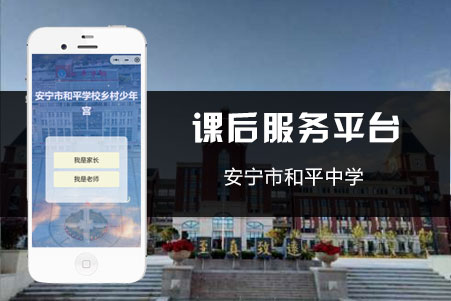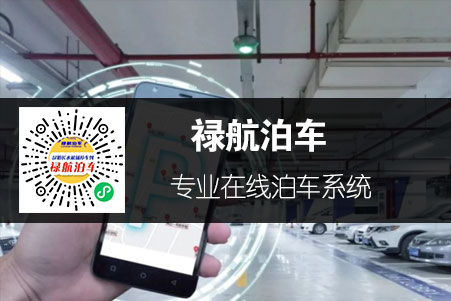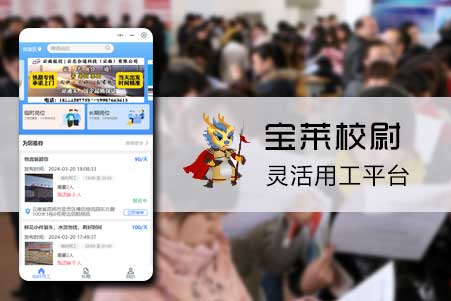微信小程序推送功能最新版本(推送到服务通知java+微信小程序代码块)
发表时间:2020-9-29
发布人:葵宇科技
浏览次数:286
微信小程序的消息推送简单的说就是发送一条微信通知给用户,用户点开消息可以查看消息内容,可以链接进入到小程序的指定页面。
一、准备工作
首先,在微信公众平台开通消息推送功能,并添加消息模板。可以从模板库选择模板也可以创建一个模板,模板添加之后,模板ID我们接下来要用的。

然后拿到小程序的APPID和秘钥 
二~打开微信开发工具
加一个按钮就可以,用这个按钮去触发这个函数方法
,//记得添加逗号哦。
sendDYMsg: function(e) {
wx.requestSubscribeMessage({
tmplIds: ['ooaZWfK6liHpqDAcnR2hgObdQuh2JqQP2Z_UR6vvraU'],
success(res) {
console.log("可以给用户推送一条中奖通知了。。。");
}
})
}
tmplIds是你小程序的模板id,触发这个函数会弹出下面的方框

三、服务端(java)代码开发:
1、老规矩先查看官网腾讯api文档:https://developers.weixin.qq.com/miniprogram/dev/api-backend/open-api/subscribe-message/subscribeMessage.send.html

2、给大家介绍一个关于微信开发的工具类(个人感觉非常优秀,可以自己去看看。):
git地址:https://github.com/Wechat-Group/WxJava
小程序文档地址:http://binary.ac.cn/weixin-java-miniapp-javadoc/
3.集成pom文件:
<!-- 小程序开发包-->
<dependency>
<groupId>com.github.binarywang</groupId>
<artifactId>weixin-java-miniapp</artifactId>
<version>3.6.0</version>
</dependency>
<dependency>
<groupId>org.projectlombok</groupId>
<artifactId>lombok</artifactId>
<optional>true</optional>
</dependency>
<dependency>
<groupId>cn.hutool</groupId>
<artifactId>hutool-all</artifactId>
<version>4.1.21</version>
</dependency>
4.根据code获取openid:
code:(重点)只能使用一次,并且只有5分钟有效期。

/*
获取openid
*/
private static String getOpenid(String code){
//临时登录凭证
String URL = "https://api.weixin.qq.com/sns/jscode2session?appid="+APPID1+"&secret="+AppSecret1+"&js_code="+code+"&grant_type=authorization_code";
String openId=interfaceUtil(URL, "");
return openId;
};
这个openid必须是小程序的openid其他的openid不可以
5.最终环节进行小程序订阅消息推送
订阅消息传参和模板消息是不一样的,需要根据人家规则进行填写,加了正则校验了


推送代码
/**
* 微信小程序推送订阅消息
* create By KingYiFan>@GetMapping(value = "/messagePush")
@ResponseBody
public Object sendDYTemplateMessage(String openId) throws Exception {
System.err.println("openId:"+openId);
wxsmallTemplate tem = new wxsmallTemplate();
//跳转小程序页面路径
tem.setPage("pages/index/index");
//模板消息id
tem.setTemplate_id("-UBAuupYlK2RAbxYvhk6UvK48ujQD72RpEOdkF-sJ2s");
//给谁推送 用户的openid (可以调用根据code换openid接口)
tem.setToUser(openId);
//==========================================创建一个参数集合========================================================
List<wxsmallTemplateParam> paras = new ArrayList<wxsmallTemplateParam>();
//这个是满参构造 keyword1代表的第一个提示 红包已到账这是提示 #DC143C这是色值不过废弃了
wxsmallTemplateParam templateParam = new wxsmallTemplateParam(
"thing2", "红包已到账", "#DC143C");
paras.add(templateParam);
paras.add(new wxsmallTemplateParam("phrase3", "刘骞", ""));
tem.setData(paras);
//模板需要放大的关键词,不填则默认无放大
tem.setToken(getAccessToken());
//=========================================封装参数集合完毕========================================================
try {
//进行推送
//获取微信小程序配置:
if(sendTemplateMsg1(getAccess_token(APPID1,AppSecret1), tem)){
return "推送成功";
}else{
JSONObject jsonObject = new JSONObject(); //返回JSON格式数据
jsonObject.put("buTie",tem);
return jsonObject;
}
} catch (Exception e) {
e.printStackTrace();
}
return "推送失败";
}
public static boolean sendTemplateMsg1(String token,wxsmallTemplate template) {
System.err.println("token:"+token);
boolean flag = false;
String requestUrl = "https://api.weixin.qq.com/cgi-bin/message/subscribe/send?access_token=ACCESS_TOKEN";
// String requestUrl = "https://api.weixin.qq.com/cgi-bin/message/template/send?access_token=ACCESS_TOKEN";
requestUrl = requestUrl.replace("ACCESS_TOKEN", token);
JSONObject jsonResult =JSON.parseObject(post(JSON.parseObject(template.toJSON()) ,requestUrl)) ;
if (jsonResult != null) {
Integer errorCode = jsonResult.getInteger("errcode");
String errorMessage = jsonResult.getString("errmsg");
if (errorCode == 0) {
flag = true;
} else {
System.out.println("模板消息发送失败:" + errorCode + "," + errorMessage);
flag = false;
}
}
return flag;
}
public String getAccess_token(String appid, String appsecret) {
String url="https://api.weixin.qq.com/cgi-bin/token?grant_type=client_credential&appid="+appid+"&secret="+appsecret;
// https://api.weixin.qq.com/cgi-bin/token.
JSONObject jsonObject = doGet1(url);
System.out.println(jsonObject.toString());
String errCode = jsonObject.getString("expires_in");
if (!StringUtils.isEmpty(errCode) && !StringUtils.isEmpty(jsonObject.getString("access_token").toString())) {
String token = jsonObject.get("access_token").toString();
return token;
} else {
return null;
}
}
public static JSONObject doGet1(String url) {
CloseableHttpClient client = HttpClients.createDefault();
HttpGet httpGet = new HttpGet(url);
JSONObject jsonObject = null;
try {
HttpResponse httpResponse = client.execute(httpGet);
HttpEntity entity = httpResponse.getEntity();
if (entity != null) {
String result = EntityUtils.toString(entity, "UTF-8");
jsonObject = JSONObject.parseObject(result);
}
} catch (Exception e) {
e.printStackTrace();
} finally {
try {
// 释放连接
httpGet.releaseConnection();
client.close();
} catch (IOException e) {
e.printStackTrace();
}
}
return jsonObject;
}
//post请求
public static String post(JSONObject json,String URL) {
HttpClient client = new DefaultHttpClient();
HttpPost post = new HttpPost(URL);
post.setHeader("Content-Type", "application/json");
post.addHeader("Authorization", "Basic YWRtaW46");
String result = "";
try {
StringEntity s = new StringEntity(json.toString(), "utf-8");
s.setContentEncoding(new BasicHeader(HTTP.CONTENT_TYPE,
"application/json"));
post.setEntity(s);
// 发送请求
HttpResponse httpResponse = client.execute(post);
// 获取响应输入流
InputStream inStream = httpResponse.getEntity().getContent();
BufferedReader reader = new BufferedReader(new InputStreamReader(
inStream, "utf-8"));
StringBuilder strber = new StringBuilder();
String line = null;
while ((line = reader.readLine()) != null)
strber.append(line + "\n");
inStream.close();
result = strber.toString();
System.out.println(result);
if (httpResponse.getStatusLine().getStatusCode() == HttpStatus.SC_OK) {
System.out.println("请求服务器成功,做相应处理");
} else {
System.out.println("请求服务端失败");
}
} catch (Exception e) {
System.out.println("请求异常");
throw new RuntimeException(e);
}
return result;
}

到现在微信小程序订阅消息推送就到此结束了,是不是超级简单那种。
给大家分享一个,只给用户提示一次,下次就不用提示就可以一直发送通知的方案: 微信设置了总是保持以上选择,不在询问按钮,只要把这对勾给点击上。下次点击通知函数,就不会给用户提示哦。 我给点击了按钮,到现在我都没找到从哪能开启这个提示。









